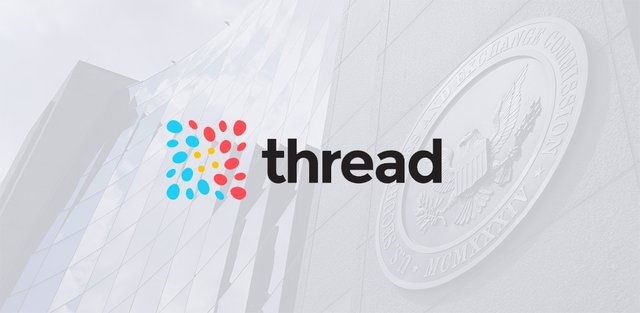
How do you play by the rules if no one knows what the rules are?
The SEC has not provided clear guidance, but recent public comments reflect their temperament towards ICOs. More specifically, SEC Chairman Jay Clayton asserted that the "structure of initial coin offerings" carry "key hallmarks of a security and a securities offering." With dozens of ICOs flooding the market weekly, the SEC is taking an active interest in ICOs including launching a fake ICO website to educate investors. US-based companies who want to run an ICO domestically face a number of challenges to be compliant with regulations.
What does this mean for investors?
All investors' identities must be verified through a KYC/AML process as outlined by the USA PATRIOT Act. Investors in the US must also be accredited to participate under Regulation D. In other words, if you don't have a net worth of $1 million or make $200,000 a year, you probably aren't accredited. Platforms like CoinList and CoinCart offer a way for ICOs to streamline KYC/AML and verification of accreditation processes.
Accredited US investor's tokens must follow a 12 month holding period (lockup) under Securities Act Rule 144. ICOs can codify this lockup in their smart contracts by using the Token Vesting contract put out by OpenZeppelin.
What about unaccredited investors in the US?
To allow for unaccredited investors in the US to participate, ICOs can explore Regulation CF, the crowdfunding exemption. Under this exemption, an ICO is allowed to raise up $1,070,000 from unaccredited investors. Republic Crypto is a registered broker/dealer and platform that can help facilitate this portion of the fundraise.
What about airdrops and bounties?
Airdrops and bounties fall into a gray area, and ICOs should take necessary precautions before considering these types of programs. Previous SEC enforcement on "free stock" has set a precedent that giveaways (airdrops and bounties) can be considered an unregistered securities offering. This is not to say giveaways are completely against regulation because CoinList is working closely with the SEC on a compliant way to award and collect tokens via airdrops.
But SEC Chairman John Clayton said… "no initial coin offerings have been registered with the SEC"
There is a big difference between being registered and following a compliant security offering. An ICO can have an unregistered offering under Regulation D. This is also known as an exemption from registration with the SEC as a private placement. It's common practice that "private and public companies engage in private placements to raise funds from investors."

What does this mean for Thread?
The Thread offering has been structured to comply with all applicable securities laws and regulations in the United States, under Rule 506(c) of Regulation D concurrently with a Regulation S offering. In staunch compliance with these regulations, our goal is to be both a steward and positive example of such compliance. We've partnered with CoinList for compliance for our sale, in order to take steps in the right direction in regards to following the letter of the law.
How does this effect our team and advisors?
Tokens compensated to the team and advisors are subject to a 12 month holding period under Rule 144. We decided that the team and advisor tokens will be under a 2 year vesting schedule with a 1 year cliff. Vesting not only complies with SEC guidance, but acts as a mechanism to prevent "token dumping" and provides structure for long term commitment by the team.
In addition to token compensation, compensation in general cannot be performance based unless the team member or advisor is a registered broker/dealer with the SEC. With this in mind, all compensation has been structured to be a flat agreed upon amount and not a percentage of the raise.
The Future of Thread
Beyond SEC-compliance, the purpose of our ICO is to raise funds and continue building the Thread Protocol. We want to impart real, positive change in the online freelancing ecosystem. It's important for us to establish strong relationships with our investors and align on a shared vision for the future. We plan to utilize our imposed lockup periods to build out value through the utility of the Thread token, strategic partnerships, and greater community of dedicated users. It is our goal to facilitate the utmost stability of our token and product.
At Thread, we are committed to transparency and integrity in our ICO. Interested in learning more?
Follow me: @andy-nguyen
Visit our website
Join our Telegram
Follow us on Twitter
Follow us on Medium
Follow us on LinkedIn
✅ @andy-nguyen, I gave you an upvote on your first post! Please give me a follow and I will give you a follow in return!
Please also take a moment to read this post regarding bad behavior on Steemit.
Downvoting a post can decrease pending rewards and make it less visible. Common reasons:
Submit
This post has received a 4.3 % upvote from @boomerang.
Downvoting a post can decrease pending rewards and make it less visible. Common reasons:
Submit
nice
Downvoting a post can decrease pending rewards and make it less visible. Common reasons:
Submit
I like that amination what do you use to create it?
Downvoting a post can decrease pending rewards and make it less visible. Common reasons:
Submit
I found an 'Always Sunny' gif via google images, then used the overlay effect on https://ezgif.com/
Quick and easy!
Downvoting a post can decrease pending rewards and make it less visible. Common reasons:
Submit